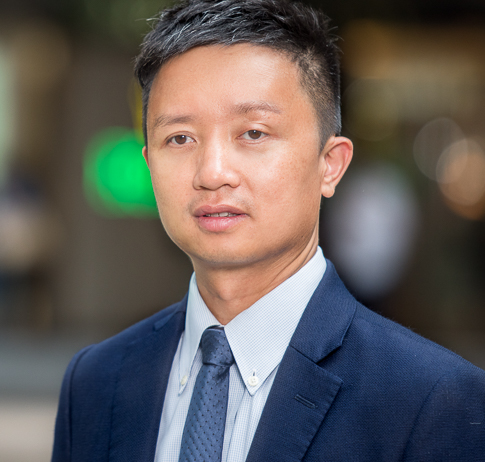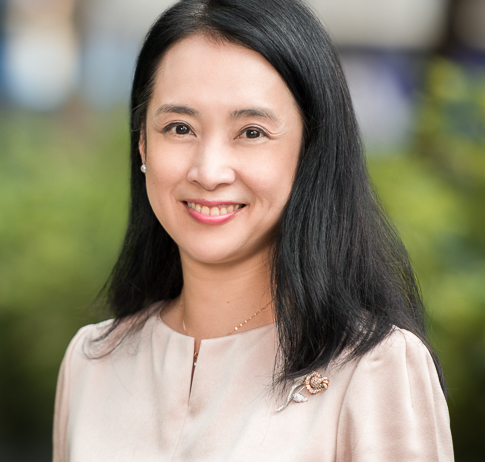Article
Foreign gains to be subject to Hong Kong Profits Tax (Part 2) – key committee-stage amendments and the new regime's application to intellectual property income
3 February 2023 | Applicable law: Hong Kong | 8 minute read
Background
Hong Kong has imposed tighter rules to refine the foreign-sourced income exemption previously available based on the traditional territorial/source principle. This new tax regime, referred to in this article as the "new FSIE regime", came into effect on 1 January 2023 with the passage of the bill (the "Bill") to amend the Inland Revenue Ordinance (Cap. 112) (the "IRO").
We will be looking at (a) the new definition of "specified foreign-sourced income" introduced during the bill-committee stage and (b) the specific treatment of intellectual property royalties under the new FSIE regime. Please refer to our previous article for a general introduction of the new FSIE regime initially proposed.
Entity-based to income-based exemption
The original Bill included the concept of "excluded entities", which excluded from the new FSIE regime specified entities (such as governmental entities, international organizations, non-profits, pension funds, ultimate parent entities of investment funds and insurance investment entities) and preserved the preferential tax treatments applicable to them. This concept was abandoned after the European Union raised concerns that such a general, entity-based approach could be easily abused.
Instead, some carve-out provisions were added to exempt foreign-sourced interest, dividend or equity disposal gains (referred to in this article as financial investment income, or "FII") from Hong Kong profits tax, if such foreign-sourced FII is derived from, or incidental to, activities of entities which produce profits that are exempt from tax or are subject to concessionary tax treatment under certain provisions of the IRO. These include profits which fall within the "unified funds exemption" (which came into operation in April 2019 under the IRO to cater to privately offered funds) and those which are subject to select "concession provisions" of the IRO. More generally, foreign-sourced FII that accrues to regulated financial entities (including banks and authorized insurers) from, or is incidental to, its business as a regulated financial entity is also exempt from the new FSIE regime.
These modifications are not expected to materially impact most of the original "excluded entities" concerned, insofar they already enjoy exemption or concessionary tax regimes under the IRO and/or if their foreign-sourced FII is not caught by the new FSIE regime in any event. For instance, most investment entities are not required to consolidate their financial statements with those of their investee companies, and therefore will fall outside of the definition of an "MNE entity" (that is, a member of a multinational group to which the new FSIE regime applies). Even if their financials were consolidated and the investment entity fell to be treated as an MNE entity, its foreign-sourced FFI may still be tax exempt: for instance, if it already enjoys the tax exemption under the IRO available to funds, whether onshore or offshore, under the "unified funds exemption" regime, then its foreign-sourced FII which is derived from or is incidental to its "qualifying transactions" (the profits from which are tax exempt in Hong Kong under the "unified fund exemption" regime) will also be excluded from the new FSIE regime.
Even if none of the foregoing applies, an investment entity that constitutes an MNE entity can still escape the FSIE tax net by satisfying the economic substance or participation requirements. Please click here for further details.
Relatedly, Hong Kong also operates a concessionary tax regime for carried interest. Accordingly, foreign-sourced FII that is derived from or incidental to a fund manager's activities whose carried interest income enjoys the concessionary tax regime would also fall outside of the new FSIE regime.
It is interesting to note that in the proposed bill to introduce a tax concession regime for family investment holding vehicles ("FIHVs") managed by single family offices in Hong Kong, there are draft provisions that will exclude relevant foreign-sourced FII received by such FIHVs from the new FSIE regime. Thus, if the proposed bill is passed, foreign-sourced FII received by FIHVs which is derived from or is incidental to their "qualifying transactions" (the profits from which, under the proposed bill, would be subject to concessionary treatment) should also fall outside of the FSIE regime.
Exemption for foreign-sourced IP income under the new FSIE regime
Prior to the new FSIE regime, foreign-sourced IP income received by a person in Hong Kong was generally assessed to tax based on Hong Kong's "territorial/source principle": that is, one looks to what the taxpayer has done to earn the profits in question. If those profit-producing activities took place in Hong Kong, the corresponding profits would be taxed. So if a person developed, or purchased, IP abroad and then licensed it offshore, any royalty income it may receive in Hong Kong would unlikely be taxed, as all relevant profit-producing activities (the development/acquisition and licensing) had occurred offshore. Sometimes this allowed multinational organizations to structure their operations in such a way that royalties from IP developed elsewhere would be received in Hong Kong and benefit from the source-based profits tax regime. For completeness, note that under certain existing provisions in the IRO (unrelated to the new FSIE regime), even if the IP income would not have been subject to profits tax under the source principle and the IP is used outside of Hong Kong, the recipient of the IP income would still be subject to tax. For example, if the recipient receives the IP income from a taxpayer who had treated the payment as a deductible expense for its own profits tax liability in Hong Kong, or if the IP was generated from research and development ("R&D") activities of a taxpayer in Hong Kong who had deducted expenses for such R&D in its profits tax assessment.
Under the new FSIE regime, all foreign-sourced income derived from IP (which, under the source principle, would have been treated as arising in or deriving from outside of Hong Kong) received by an MNE entity in Hong Kong would be assessable to profits tax in Hong Kong, subject to the "nexus" (effectively local R&D) carve-out.
The nexus requirement, based on the "nexus approach" of the OECD, is to ensure that a minimum amount of R&D is done locally before income from such R&D can be exempt from profits tax under the new FSIE regime. The proportion of local R&D expenditure (whether carried out by the MNE entity, its associate that is Hong Kong-resident or a non-associated person on its behalf) is used as a proxy for substantial economic activities: it helps to draw a plausible connection between the royalty income received and the expenditures incurred in or from Hong Kong that contribute to that income.
The nexus carve-out only applies to income earned on "qualifying IP assets", which covers patents granted or patent applications made under the Patent Ordinance (Cap. 514), a copyright subsisting in software under the Copyright Ordinance (Cap. 528) and such IPs granted, made or subsisting under laws of overseas jurisdictions. It does not, however, cover trademarks and other IPs.
In other words, to determine how much of an MNE entity's foreign-sourced IP income received in Hong Kong is tax exempt under the nexus requirement, one multiplies (a) the income it receives from the qualifying IP assets (i.e., copyrights or patents) by (b) the ratio of its qualifying R&D expenditures (multiplied by a super deduction multiplier of 130%) to its total expenditures (qualifying or otherwise) incurred in respect of the relevant qualifying IP assets.
Although primarily a tax-driven initiative, it is hoped that the new FSIE regime can help spur greater R&D investment in Hong Kong.
On the whole, the new FSIE regime brings Hong Kong into alignment with international tax standards, but could present an increased tax compliance burden for multinationals with a presence in Hong Kong. Should you have any questions, please feel free to reach out to Daniel Tang or Deirdre Fu for a consultation.


